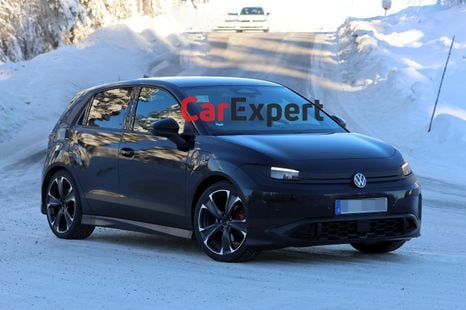

Damion Smy
2026 Volkswagen ID. Polo EV spied along with ID. Polo GTI electric hot hatch
4 Hours Ago
Plug-in hybrid versions of the Land Rover Discovery Sport and Range Rover Evoque, both badged P300e, should hit Australian shores in about 12 months time.

Senior Contributor
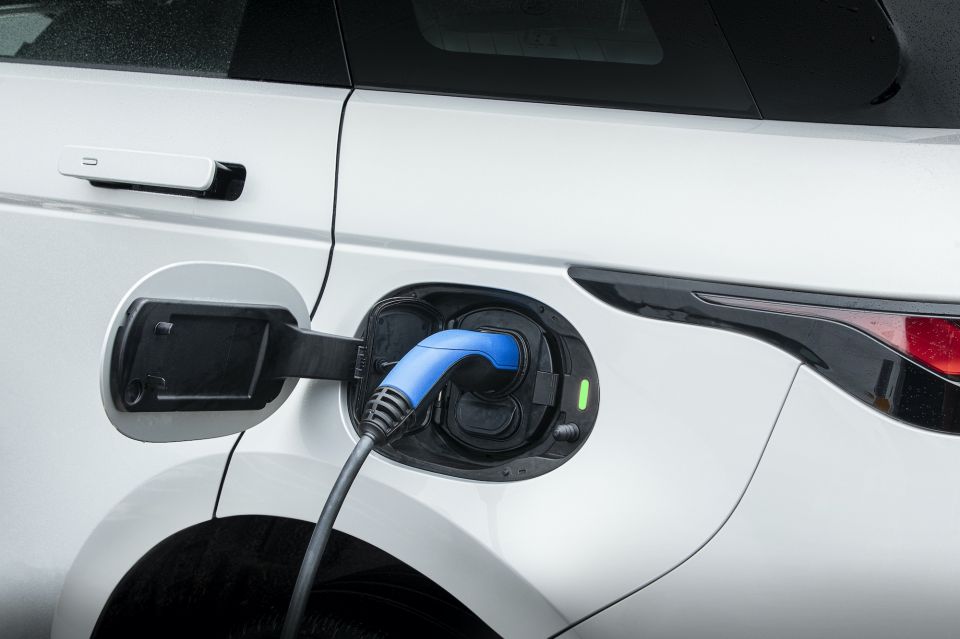

Senior Contributor
Two more plug-in hybrid SUVs are headed for Australian shores, albeit not until the second quarter of 2021.
Plug-in hybrid (PHEV) versions of the stylish Range Rover Evoque and more utilitarian Land Rover Discovery Sport offer more than 60km of claimed electric range, but also have petrol engines to keep you going if you don’t have access to a plug.
Jaguar Land Rover (JLR) Australia says the average commute is 31km daily, so the pure-electric range is sufficient for most day-to-day trips.
The two models are called the Land Rover Discovery Sport P300e and Range Rover Evoque P300e.

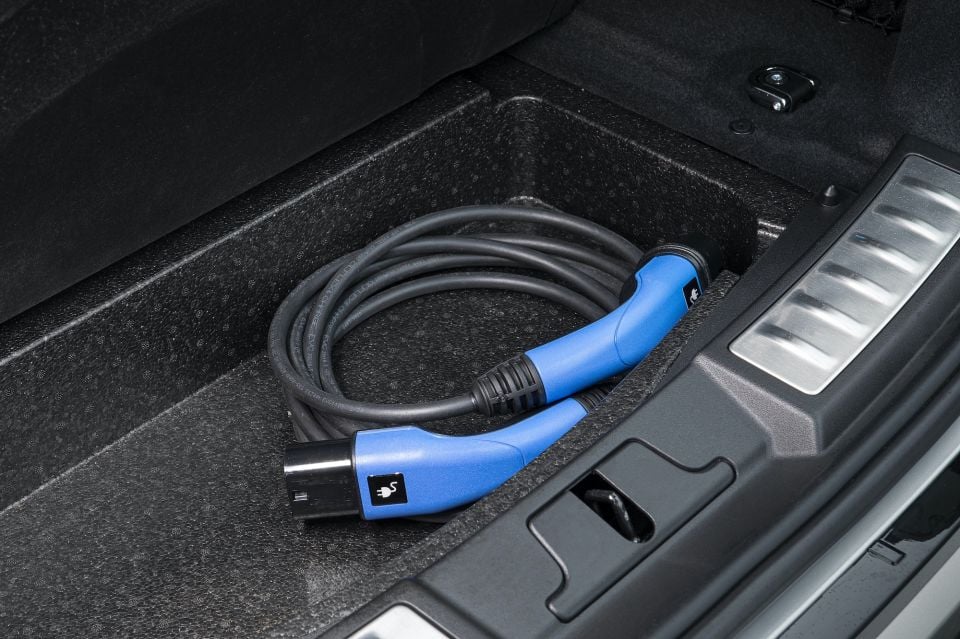
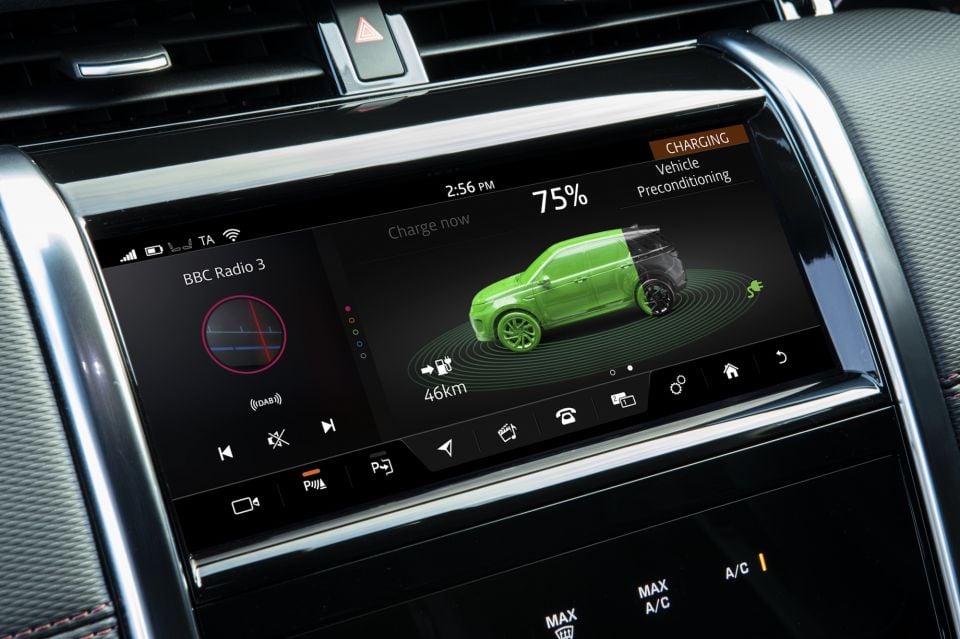
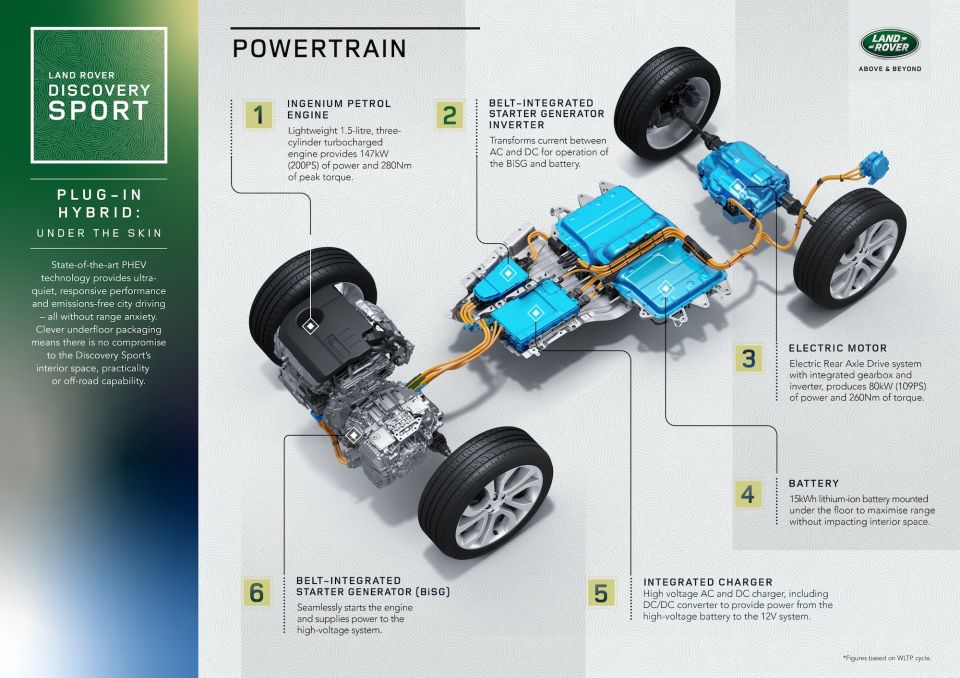
The new PHEV system in these twins features a transverse 1.5-litre three-cylinder petrol from JLR’s Ingenium engine range, spun off from the group’s 2.0-litre four. It makes 147kW of power, and is paired with an eight-speed automatic transmission and an 80kW electric motor on the rear axle within the integral link suspension to deliver all-wheel drive (AWD).
This motor draws power from a 15kWh battery pack, which can be charged using a wall socket or fast-charger, and gains supplementary charge from regenerative braking. The battery has 84 prismatic cells arranged in seven 50Ah modules of 12, with a 6mm-thick under tray for off-road underbody protection.
JLR claims the battery can be powered up from zero to 80 per cent in as little as 30 minutes using a public rapid (32kW) DC charger. A home 7kW wallbox should charge the battery to 80 per cent in 90 minutes, while a regular home powerpoint will do the same overnight.
You can check your charge, set a charge timer, and preset the air conditioning remotely using an app.
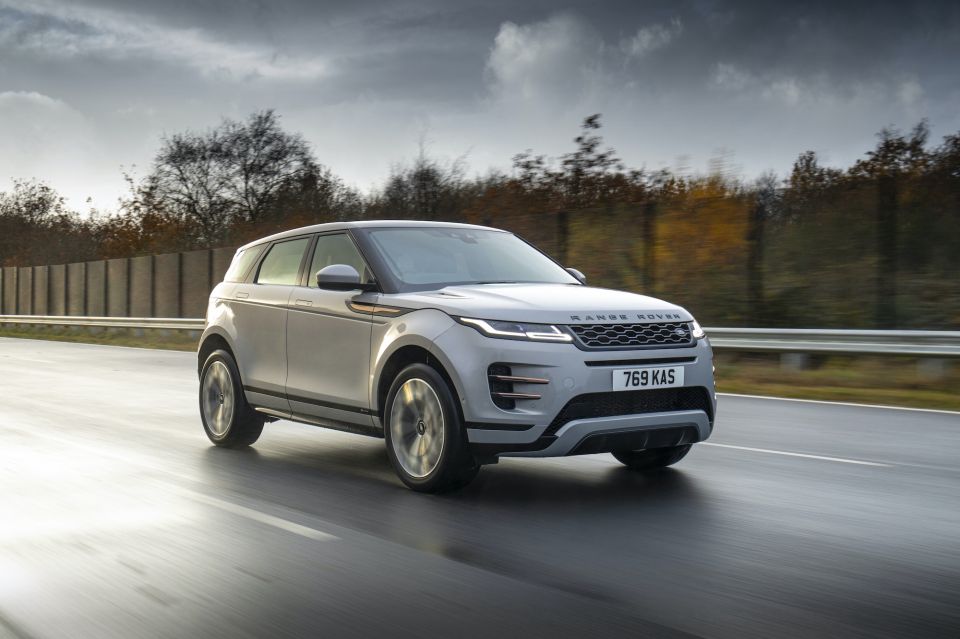
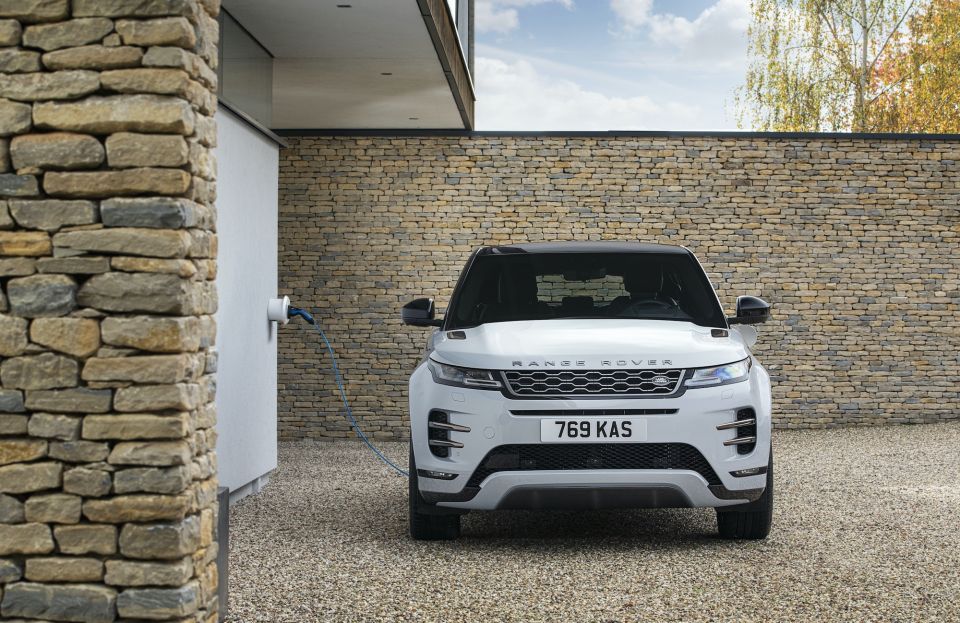
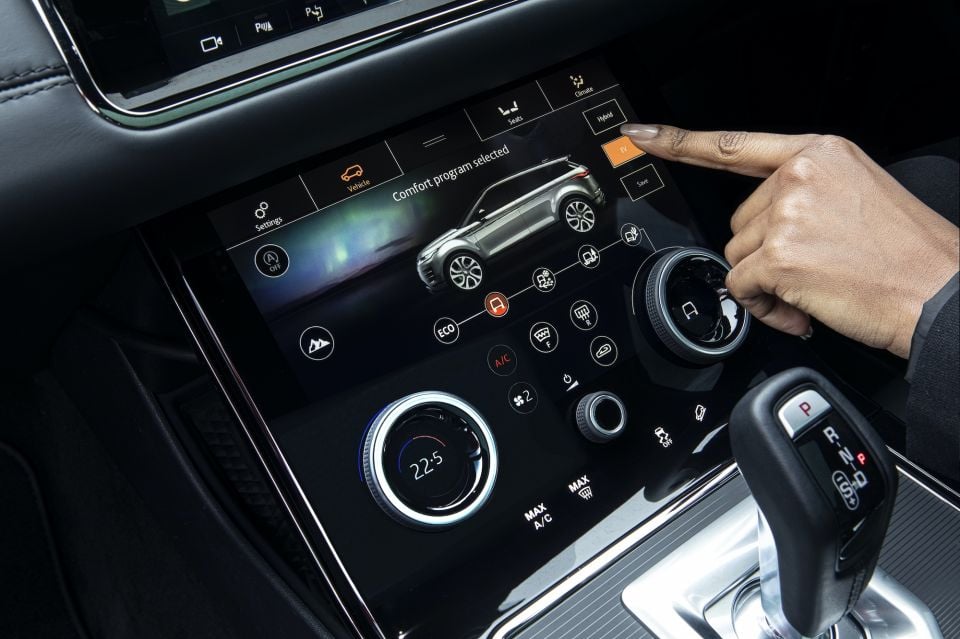
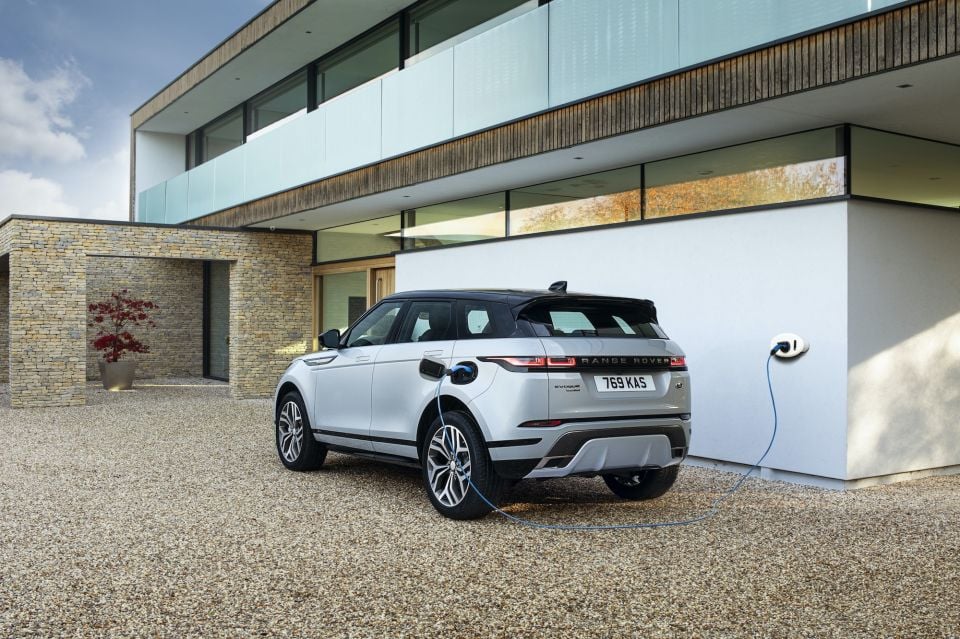
Both models come with three switchable driving modes: a hybrid setting where the car’s brain decides on how to balance the two power sources, a mode where it relies on the battery reserves only (for instance, in city centres where vehicle CO2 emissions are being banned), or in petrol-only mode to save those battery levels for later.
The electric motor decouples above 135km/h. JLR claims the boxier – and therefore less aerodynamic – Discovery Sport P300e manages a pure EV range of 62km, 4km lower than the slinky Evoque P300e.
The total combined system output in both is 227kW of power and a potent 540Nm of torque, and the claimed fuel economy over the first 100km of driving (presuming you start with a full charge) is an impressive 1.4L/100km (Evoque) and 1.6L/100km (Disco Sport).
Fuel economy claims for PHEVs are worth taking with a healthy grain of salt, given the figure with a depleted battery is going to be double or triple when the car drives as a milder hybrid instead of a pure EV.
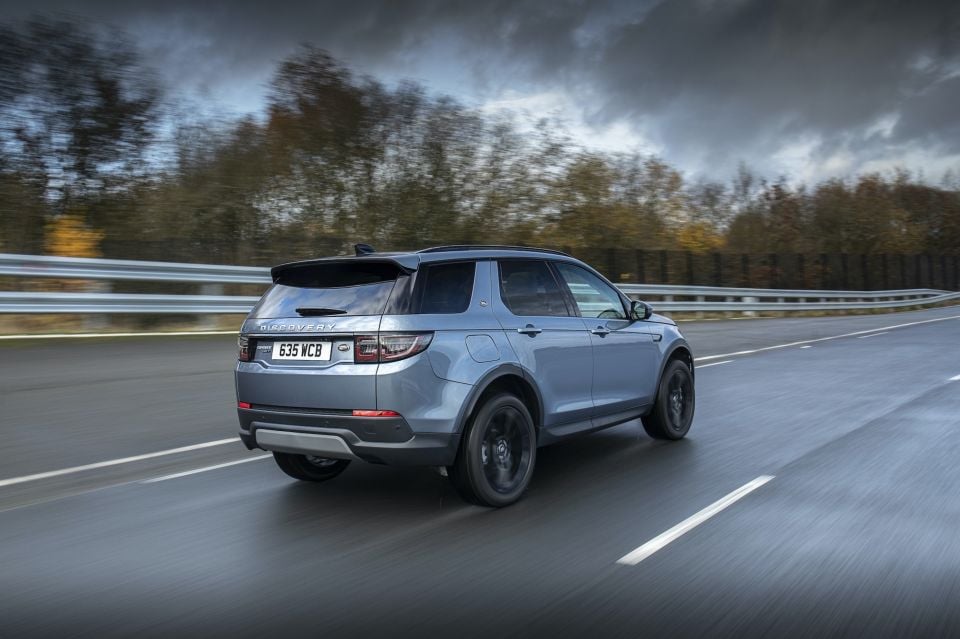
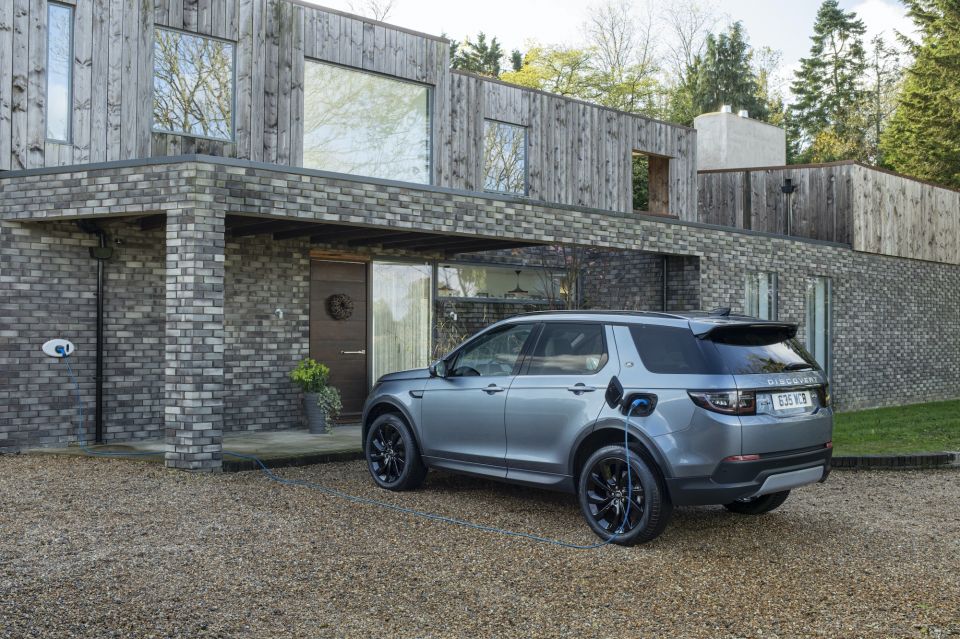

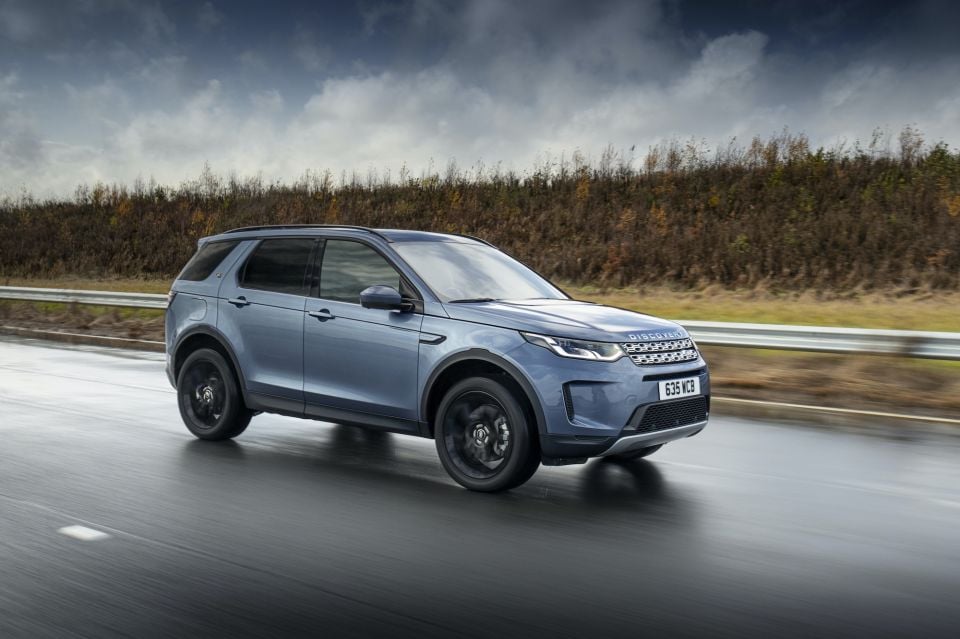
Jaguar Land Rover claims to have filed over 40 patent applications on the system. A number of these relate to the high voltage belt-integrated starter generator.
How do the JLR PHEV twins compare to their competitors? The Mercedes-Benz GLC 300e has a 235kW/700Nm system, a 13.5kWh battery, and a claimed EV range of 43km.
The BMW X3 xDrive30e has a 215kW/420Nm system, a 12kWh battery, and 46km of EV range, while the Volvo XC60 T8 Polestar Engineered has a 311kW/670Nm system, a 10.4kWh battery, and a range claim in EV mode of 45km.
At the cheaper end, there’s Mitsubishi’s groundbreaking Outlander PHEV with its 13.8kWh battery and 54km EV range.
JLR is rolling out its new PHEV twins partly because of increasingly tough Euro VI emissions regulations that mandate range-wide CO2 emissions averaged out to below 100g/km.
Go deeper on the cars in our Showroom, compare your options, or see what a great deal looks like with help from our New Car Specialists.


Damion Smy
4 Hours Ago
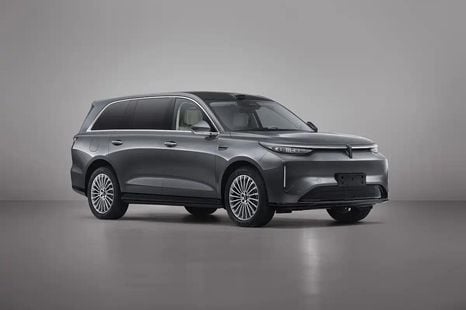

William Stopford
5 Hours Ago
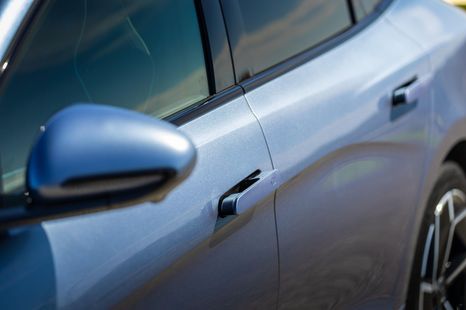

Damion Smy
8 Hours Ago
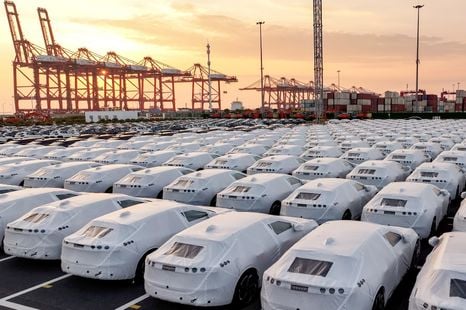

Ben Zachariah
9 Hours Ago
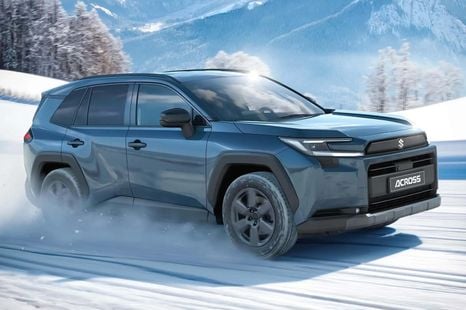

Damion Smy
9 Hours Ago
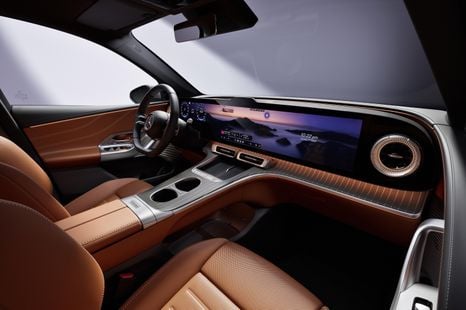

William Stopford
10 Hours Ago
Add CarExpert as a Preferred Source on Google so your search results prioritise writing by actual experts, not AI.